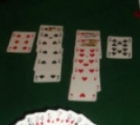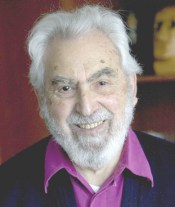-1385534050.jpg)
Photo Credit: Courtesy of www.flickr.com
For those of your tutors who are helping Hebrew speakers to understand the intricacies of English spelling and pronunciation, I would offer the following observation about what I call the magic letter "H".
In Hebrew, the softer pronunciation of certain letters is changed to a harder form by the introduction of the "dagesh" which is a dot placed in the middle of the relevant letter. A particular example is פ Fay that becomes a פּ Pay when the dagesh is introduced. In English, the letter H is the equivalent of the dagesh, although in reverse, as it softens the hard consonant that precedes it or changes the form of pronunciation. So the letter P is pronounced as an F when it is followed by an H, thus PH = F in Philosophy (twice!).
The letter G will also become an F in ‘rough’, ‘cough,’ and ‘tough’. The G will become silent in ‘bough’ and ‘plough’. An S will be changed to a sibilant Sha when followed by an H. The C becomes Che in ‘chat’ and ‘chess’. The T also changes. There are, of course, exceptions so students need to watch out for the particular effect of the letter H that is both a consonant and an aspirant and is also an alchemist (ironically a word where the alchemy does not work!).
Yoel Sheridan is the author of "From Here to Obscurity" and "Gold Ducats and Devilry Afoot".
 Connecting with your Kibbutz volunteer friends
Connecting with your Kibbutz volunteer friends Farewell, My Lovely
Farewell, My Lovely (212x280)-1386437144.jpg) Now we’re making the headlines . . .
Now we’re making the headlines . . . Midrash Meets Tel Aviv Culture
Midrash Meets Tel Aviv Culture The Open University of Israel
The Open University of Israel MUMMIES, MYTHS AND MAGIC CATS IN ANCIENT EGYPT
MUMMIES, MYTHS AND MAGIC CATS IN ANCIENT EGYPT Yoel Sheridan
Yoel Sheridan